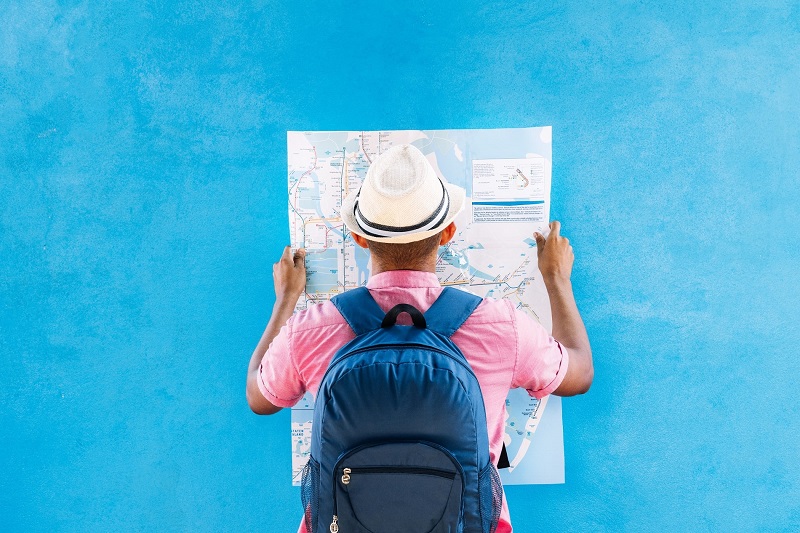Ah, travel! It’s the spice of life, isn’t it? The thrill of new experiences, the joy of stepping out of your comfort zone, and the memories that last a lifetime. But let’s face it, planning a trip can be a daunting task.
Understanding the Basics of Stress-Free Travel
Unraveling the art of stress-free travel involves a balance of excitement and careful preparation. Let’s dive deeper to grasp the significance of planning and its psychological benefits.
Why Planning is Key
Travel planning reigns supreme when seeking a flawless trip. Numerous research pieces highlight that a well-structured itinerary elevates the overall experience. The American Psychological Association, for instance, published a study showing 89% of holidaymakers found planned trips more enjoyable than spontaneous ones.
- It reduces unexpected surprises. Crafting a well-thought-out itinerary helps you anticipate potential issues, such as traffic or local holidays, and formulate contingencies.
- It ensures you don’t miss out. Let’s take New Orleans as an example. Without planning, you might overlook the need to book a Jazz tour in advance.
- It saves money. Booking accommodation and flights in advance often leads to savings. According to a study by CheapAir, flights book 47 days in advance are usually the cheapest.
The Psychological Benefits of Structured Travel Plans
Beyond stress reduction, planning your journey yields psychological benefits, often underestimated.
- Planning boosts anticipation. Research from Cornell University suggests looking forward to vacation enhances your happiness levels.
- It provides a sense of control. Knowing what to expect reduces anxiety, as shown in a study by the British Psychological Society.
- Finally, planning fosters learning. When researching possible destinations or activities, you gain knowledge about different cultures and environments. This information accumulation is neatly captured in a study by the Journal of Travel Research.
In essence, adopting a strategic approach to planning trips can result in more memorable and rewarding travel experiences.
Essential Pre-Travel Preparation Steps
In order to ensure a seamless travel experience, here are a few crucial pre-travel preparations to consider. They aren’t just suggestions—they’re keys to transforming an ordinary trip into an unforgettable adventure.
Research Your Destination Thoroughly
The first step is always obtaining an in-depth knowledge about your destination. Learn about the customs, currency, local language tips, major attractions, offbeat spots, safety advisories, and weather forecast. It’s beneficial to read travel blogs, guidebooks, and forums, gaining insights from fellow travelers’ experiences.
Budgeting and Financial Considerations
Figuring out the financial aspects of your trip is equally critical. Determine the estimated cost of the entire journey, including accommodation, travel, meals, shopping, and unforeseen expenses. It’s crucial to establish an ideal daily budget, incorporating miscellaneous costs such as transportation. Monitor exchange rates if you’re traveling internationally, as small variations can significantly affect your budget.
Booking Flights and Accommodation Early
An early bird does indeed get the worm in terms of travel plans. By booking flights and hotels ahead of time, you’re likely to get better deals and choices. Monitor airfares for a while before making the final purchase, using fare alert tools if needed. Additionally, check various accommodation options, consider room types, and review cancellation policies before finalizing your booking. This early planning takes off a significant amount of stress, leading to an enjoyable travel experience.
Packing Strategies for Efficient Travel
In the pursuit of stress-free travel, one of my foremost tasks involves perfecting my packing strategies. It revolves around thoughtful selection, essential prioritizing, and smart organization.
Creating a Customized Packing List
Packing starts with a list, tailored to my needs and destination. Here’s my approach to it: I cogitate the duration of the stay, the predicted climate, planned activities, and accommodations I’ve booked into the list content. For instance, if I’m heading to a beach location for five days, my list includes beachwear items, protection from the sun, like sunscreen, hats, and sunglasses, paired with casual evening attire for laid-back dining.
Tips for Packing Light and Smart
Packing light, yet smart, demands practicality and versatility. My top picks for this include: I select clothes that mix and match easily, focusing mainly on neutral colors and simple prints. I lean towards compact and multipurpose toiletries and beauty products. They include, for example, a moisturizer with embedded SPF, or a shampoo-conditioner combo. Using travel-sized containers to fit the essentials instead of packing heavy, full-sized products is another thumbs up! Additionally, I always double-check airline luggage restrictions prior to, if not, it makes the packing process more cumbersome and could lead to unwanted baggage fees. For gear and technology essentials, I keep it minimal, bringing only those necessary for my trip, with their respective charging cables. By adhering to these strategies, I ensure a light bag without compromising on my necessities, making my travel experience an enjoyable one.
Navigating Travel Disruptions and Challenges
Even with the most meticulous plans in place, travel may present several disruptions and challenges, such as delayed flights and misplaced passports. It’s critical to have a handle on these hurdles, turning potential trip-ruiners into mere bumps on the exciting journey of travel.
Handling Unexpected Situations
Unexpected incidents, like cancelled flights, bad weather, or health issues, are unavoidable aspects of travel. In these situations, travelers benefit from remaining calm, evaluating options, and formulating a course of action. For instance, in the event of a cancelled flight:
- Contact the airline: They often have a fallback plan and can provide alternatives.
- Revisit your travel insurance: Most policies cover flight cancellations. They may refund money or provide alternative travel options.
Keeping Important Documents Accessible
Having important documents available and easily accessible is crucial during travel. Here’s a checklist to help:
- Passport or ID: It’s crucial to have a physical copy and a few photocopies. Store them separately in case of loss or theft.
- Travel insurance documents: These provide coverage details and contact information for emergencies.
- Boarding passes and hotel bookings: While electronic copies have become more common, it’s still a good idea to keep physical copies.
Just as planning and preparation pave the way for stress-free travel, being equipped to handle disruptions ensures a smoother journey. It’s a layer of assurance that, no matter what happens along the way, you’re ready to tackle it head on and continue your adventure.
Technology Tools to Enhance Travel Planning
Let’s delve into the digital world’s toolbox. Various apps and resources aid travel planning and can significantly reduce the burden of uncertainty.
Useful Apps for Itinerary Management
Several user-friendly apps simplify the process of managing travel itineraries. TripIt, for example, categorizes all your flight informations, hotel reservations, car rentals in one place. It automatically syncs travel plans to your calendar, making the organization hassle-free. Google Trips, additionally, lets you plan your day-to-day travel activities, and the app even works offline, handy in areas with weak internet connectivity.
Online Resources for Real-Time Updates
Staying up-to-date with real-time information can prove valuable, especially in the instance of unforeseen circumstances. Websites like FlightAware keep you posted on flight status and any potential delays or cancellations. Websites like Skyscanner and Google Flights, meanwhile, provide up-to-the-minute data on flight prices, enabling you to snag the best deals. Bear in mind, it’s beneficial to follow official social media accounts of airlines and travel advisories, as they provide timely updates and essential information.
Conclusion
So there you have it! Traveling isn’t just about the thrill of new experiences. It’s also about the art of careful planning. When you strike the right balance between excitement and preparation, you’ll find that the journey becomes just as enjoyable as the destination.
Remember, a well-structured itinerary doesn’t just make your trip smoother. It also boosts your anticipation and opens doors for cultural learning. And with the help of technology, planning can be easier than ever. Apps like TripIt and Google Trips, along with online resources like FlightAware, Skyscanner, and Google Flights, have revolutionized the way we plan our travels.
And let’s not forget the importance of staying informed. Following official airline social media accounts and keeping an eye on travel advisories can make all the difference when unexpected situations arise. So go ahead, plan like a pro and enjoy stress-free travel. You’ve got this!










0 Comments